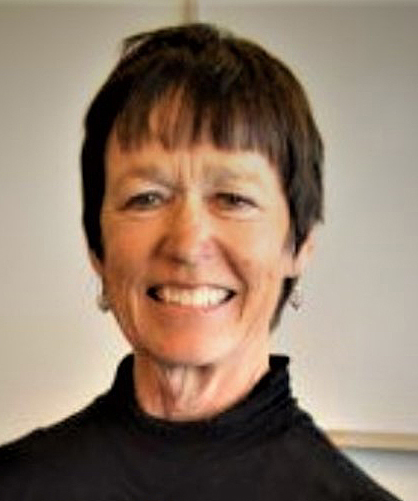
In Memoriam: Lenora Timm, Founding Chair of Linguistics
Linguist studied endangered language, protected wildlife habitat.
A memorial service will begin at noon Thursday (Jan. 26) at Putah Creek Lodge for Lenora “Nora” Timm, a professor emerita of linguistics and former associate dean of Graduate Studies.

Timm, who died Nov. 22 at age 73 after a recurring battle with cancer, was an internationally known expert on Breton, an endangered Celtic language of Brittany in northwest France.
Family, friends and colleagues also remembered her as a fearless advocate for UC Davis students, a fair-minded champion of social justice, and an environmentalist who helped preserve thousands of acres of threatened wildlife habitat in California, Wyoming, Nevada and New Mexico.
Among other conservation efforts, Timm and her husband, biologist Frank Maurer, spearheaded the creation of the Quail Ridge Reserve to preserve native grasses and oak woodlands in Napa County near Lake Berryessa. Now close to 2,000 acres, Quail Ridge is part of the UC Natural Reserve System.
Bridged nature and culture
She was also a faculty member and past director of the former Nature and Culture program, which from 1991 to 2011 offered undergraduates a major that combined environmental studies with the humanities.
In addition, she played classical guitar and raised organic chickens, geese and turkeys.
“She was wonderfully and widely intelligent, engaged in a variety of eclectic interests,” said Carol Wall, former vice chancellor of Student Affairs, who had been both teacher and colleague to Timm. “She was bright and witty, excellent company.”
Wall was a faculty member and graduate advisor in the Department of Anthropology when Timm began graduate studies there in the late 1960s. “She was an excellent student, always bringing novel perspectives to seminar discussions and enlivening them,” said Wall, who chaired Timm’s dissertation committee.
After earning her Ph.D. in 1973, Timm joined the linguistics faculty. While her doctoral thesis focused on “A Child’s Acquisition of Russian Phonology,” she would go on to also study language and gender, minority languages, and “code-switching” (when bilingual speakers alternate between languages in a single conversation). In one of her most widely cited studies, she showed that bilingual English-Spanish speakers were not using a simplified creole but following the grammar of each language.
Expert on Breton language
Proficient in seven languages in addition to her native English — Breton, French, Italian, Spanish, German, Russian and Latin — Timm was best known for her work on Breton, which is spoken by an estimated 200,000 people and has been designated by UNESCO as a “severely endangered” language.
She was a founding member and longtime president of the U.S. Branch of the International Committee for the Defense of the Breton Language.
Lois Kuter, an ethnomusicologist active with the Breton organization, said Timm wrote scholarly articles on the shifting borders, both geographically and socially, of the language’s use in Brittany.
“She was not timid about writing articles that demonstrated the challenges and roadblocks France put in the way of Bretons trying to promote their language,” Kuter said.
Timm introduced the works of a 20th-century Breton poet to English speakers with the publication of her 1990 book, A Modern Breton Political Poet, Anjela Duval: A Biography and an Anthology. [Timm's translations can also be read on a site devoted to Duval's work.]
When the linguistics program became a full-fledged department in fall 1999, Timm became department chair, a position she held until 2007, with one year off in 2005-06. As chair, she led efforts to launch the Ph.D. program in linguistics.
“We called her our founding mother,” said Almerindo Ojeda, professor of linguistics.
Mentor to students, colleagues
Like other colleagues, Ojeda described Timm as a champion of students. He said she once bundled a graduate student with a toothache into her car and took him to the dentist herself.
She also advocated for female colleagues, chairing an advisory committee on the status of women at UC Davis in 1982-83, directing the Women’s Resources and Research Center from 1983 to 1989, and co-authoring a 1989 report, “Academic Women at the University of California, Davis: Institutional Barriers to Retention and Promotion and Recommendations for Action.” In addition, she served from 1995 to 1998 as a special assistant to the provost for diversity and affirmative action.
“We stood side-by-side on many issues: what was best for students, the appropriate role of faculty (in concert with or opposition to the administration), and social issues of what was right and just,” Wall said. “I always knew her to be fair and balanced in her views and respectful of positions that differed from hers, while at the same time willing to argue eloquently for positions she believed justified.”
Vai Ramanathan, professor and chair of linguisitics, described Timm as a mentor to her and other junior faculty. “Nora’s integrity and convictions made her strong; her sensitivity made her gentle; a most rare combination in academia. We will miss her, but even as we mourn her passing, we celebrate a life well lived, tasks well done, and a warmth that is with us to this day. She is very present in the department even in her absence. May she rest in peace.”
Timm served as associate dean of Graduate Students from 2007 until her retirement on June 30, 2015.
Maurer said his wife, a breast cancer survivor, was “just getting into retirement,” relaxing and regularly playing guitar when cancer returned with a vengeance last fall.
In October, another tragedy struck the family when one of Maurer’s two grandsons was killed in a car crash. Maurer is also a cancer survivor (leukemia), but who is battling health problems still.
A wildlife biologist who met Timm in the early 1980s when she came to buy ducks from him for her farm, Maurer said she was a “great organizer” and fair minded. “She probably could have been a diplomat because she could talk to both sides and break down barriers,” he said.
Married in 1985, the couple farmed 37 acres west of Davis, raising chickens and other fowl that they sold to Berkeley restaurant Chez Panisse and other customers.
In addition to her Celtic language studies, Maurer said Timm helped foster Scottish American pride by supporting his stone carving. He specializes in Pict and Celtic pictographs and has created unique “tartan stones” for 35 U.S. states.
Scott McLean, a lecturer emeritus of comparative literature who taught with Timm in the Nature and Culture program, described Timm as a poet’s soul sister, in his poem, titled “StarLace”:
“Jogging in the light, listening to owls, lying
on the ground in the mud and the rains. She was
always looking at the heavens …”
A native of Illinois, Timm earned her bachelor’s degree in chemistry at UC Berkeley. She was previously married to Ted Margadant, professor emeritus of history, and David Olmsted, professor emeritus of anthropology.
In addition to Maurer, survivors include two stepsons, a stepgrandson, two brothers and a sister, and a nephew.
— Kathleen Holder, content strategist in the UC Davis College of Letters and Science
